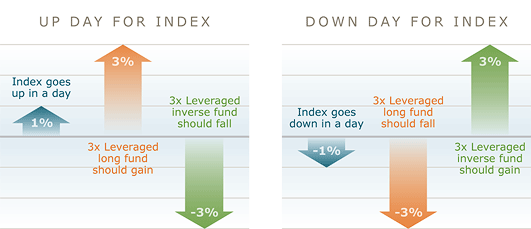What are ETFs How Do ETFs Work How are Stocks and ETFs Different Should I Invest in ETFs
Post on: 5 Апрель, 2015 No Comment

What are ETFs?
Exchange-traded funds (ETFs) are an attractive option for many investors. First introduced to the markets in 1993, ETFs combine the diversification benefits of mutual funds and the flexibility of individual stock ownership with lower fees and favorable tax treatment. These attributes have made ETFs a popular investment choice; currently, almost a trillion dollars have been invested in ETFs worldwide.
Why have ETFs become so popular? The answer is rather straightforward – because an ETF is basically a mutual fund that trades like a stock. ETFs have many similarities with the traditional mutual funds familiar to most investors. As its name implies, ETFs typically focus on holding large “baskets” of stocks that are listed on a specific securities exchange such as the S&P 500. Individual investors purchase interests in ETFs from large financial institution, which act as “middlemen” with the ETF. This ability to diversify is attractive to many investors because it mitigates the risks inherent in holding a smaller portfolio.
How Do ETFs Work?
The ETFs goal, much like a mutual fund, is to replicate the performance of the exchange or index. For example, one of the largest ETFs by market capitalization is Standard & Poor Deposit Receipts (SPDR). SPDR’s objective is to match the performance of the S&P 500 index for its investors.
In recent years, ETFs have evolved to include “exchanges” other than large market indexes. Today’s investor can participate in ETFs that hold commodities (such as gold, oil and agricultural products), bonds and even currencies.
How are ETFs, Stocks and Mutual Funds Different?
With all of these similarities, what makes ETFs different than mutual funds? The key difference between the two investment vehicles is the ability of the ETF investor to make trades throughout the day, while mutual funds generally allow purchase or sale transaction at the end of each business for the net asset value of its shares. This factor presents a significant advantage for traders seeking to take arbitrage traders seeking to take advantage of intra-day fluctuations in demand for ETF shares.
Essentially, ETFs allow the investor to deploy all of the strategies used with trading individual stock shares, while enjoying the benefits of diversification. Investors can use limit orders (contingent sell orders that are executed only when a defined price threshold is reached), short-selling (borrowing shares from a third party with the intent of returning them at a later date) and optioning (purchasing the right to buy a share in the future at a defined price). This combination of diversification and flexibility gives the investor the best of both worlds.
ETFs have other advantages over mutual funds as well. Because they are typically not actively managed, the fees and costs of ETF share ownership are generally lower than mutual funds; however, standard trading fees apply for executed transactions on the exchange. There are tax benefits as well – since sales of individual stock shares are usually not required to redeem ETF interests, the potential capital gains tax liabilities that can be realized from ETF sales are greatly mitigated.
Niche ETFs
As mentioned above, in addition to the traditional “index” ETFs, there are an increasing number of actively managed “niche” ETFs that specialize in particular commodities or market areas. Commodities such as gold, tin, oil, natural gas and agricultural products are the most common and popular niche ETFs.
In 2011, the three largest niche ETFs specialized in gold, silver and natural gas. Other specialized ETFs are available for particular business areas such as health care, national markets and so on. ETFs can provide an attractive option for investors seeking the flexibility of stock trading and the safety of diversification, without the management fees and potential tax liabilities inherent in traditional mutual funds.
The popularity of ETFs in recent years had led to an explosion in available investment choices, from the traditional index-based ETF to specialized ETFs for particular sectors such as precious metals, energy and agricultural products. ETFs are poised to become even more prevalent as many institution that offer employer-based 401(k) retirement plans will soon offer ETFs to plan participants.
As with any investment product, there are risks inherent in investing, as investors active in the market over the past several years can attest. Nevertheless, the advantages of ETFs make it a smart move to consider them when building your investment portfolio.
This article was updated on 3/5/2015.














